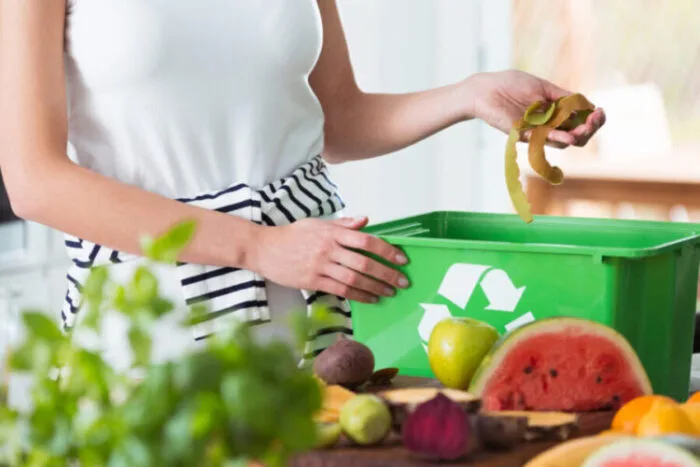Table of contents
Urban Composting for Beginners
Urban composting is a good way you can contribute to the fight against climate change and save money. Consequently, we want to provide you with a guide on how you can compost at home. It is more important than ever to be sustainable.
Composting is a great way to reduce waste and support sustainable gardening practices. While it may seem daunting for those living in urban areas, there are plenty of ways to compost at home, regardless of space limitations. Not only will composting help you reduce your environmental footprint, it will also save you money on fertiliser. Read on for our tips on urban composting.
Urban Composting Tips
#1 Benchtop Compost Bin
Composting needs to be a habit. So it needs to become part of your daily routine. This all starts in the kitchen.
Dedicate a container as the receptacle for your kitchen waste. Make sure it is placed somewhere that is easy to access.
If you live in the tropics you should consider using a container with a lid, to minimise ‘fruit fly’ activity around your kitchen compost bin. When it is full, take it outside and empty the contents into your garden composting bin.

#2 Water and Air are Essential to Urban Composting
Composting requires four ‘essential elements’. They are a) organic matter; b) bacteria; c) water; and d) oxygen.
You can greatly hasten the process by ensuring your compost is moist and by ‘turning it over’ regularly so oxygen can get in. There are many tumbler style compost bins around these day that make this process easy.
#3 Crunch and Cut
Eggshells are good to compost, because they have calcium (which you need in the garden).
Make sure you crunch up the shells before you add them to your compost. Otherwise they will not break down and you will miss out on the valuable calcium they offer.
Also cut up anything that takes longer to break down. Garden branches are a good example. Prune branches into your compost bin in small pieces, rather than throwing in a whole branch!
#4 Urban Composting No’s
There are some things you should definitely not put in your compost. So we will look at three of them now.
Dog and cat poo should not be added to your compost. This is because they are carnivores. Hence dog and cat waste often contains microorganisms and parasites that you do not want your hands or your veggies to be in contact with.
Citrus peels are not good for compost. This is because the acidity in citrus peels can kill worms and other microorganisms, which can slow down the process.
Meat scraps should not feature in your urban composting. So you do not want to add fish and meat scraps to your compost. This is because fish and meat will smell and act like a magnet for any rats, mice and other pests in the neighbourhood. In addition the stink from rotting meat and fish could really annoy you and your neighbours.
#5 Urban Composter Accelerator
If you keep your compost moist and turn it regularly, it will break down faster. The more commitment you show to the process, the quicker it will break down. It is not a matter of dedicating a lot of time, just remember to do the basics regularly.
Apart from making sure your compost is moist and turning it regularly, shredding is the best thing you can do to compost faster. Run over your garden waste with a mower, or put branches etc., through a garden shredder. This will give you a big ‘head start’.
#6 Compost Tumbler
A compost tumbler will make it easier to oxygenate your compost and accelerate the process. These tumblers also allow you to compost in a way that keeps your material off the ground and hidden from view. Consequently, it reduces the chance of rats and other pests making your compost their home.

Urban Composting and Climate Change
As well as returning nutrients to the soil, composting also reduces greenhouse gas emissions. Food waste that breaks down without oxygen emits the greenhouse gas methane, which is a major greenhouse gas. Indeed the amount of greenhouse gases produced by food waste in Australian landfill each year is equivalent to the emissions of the nation’s aviation and iron ore industries combined.
Save Money
Composting can save you money as well. Hence, gardeners that compost well (and often) can meet most of their fertilising needs by applying rich, broken down compost, that they have made at home.
In conclusion, thank you for reading and all the best with your urban composting.
Relevant Content
- 7 Smart Ways to Save Water at Home
- How to Survive Climate Disasters
- Personal Transport Emissions
- Recycle Waste
- Stop Fossil Fuel Use

